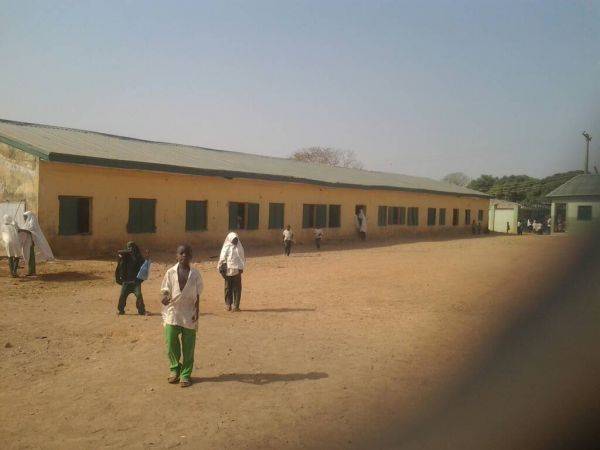Home Education Poor basic education funding bane of sector’s devt
Poor basic education funding bane of sector’s devt

According to the mandate given the Universal Basic Education Commission, UBEC, the statutory body charged with managing the basic education sector (primary school to junior secondary school level) in Nigeria, “Every Government in Nigeria shall provide free, compulsory and universal basic education for every child of primary and junior secondary school age. Every parent shall ensure that his/her child or ward attends and completes (a) primary school education; and (b) junior secondary school education.” Also, by the statistics from the commission, there are 47,010,008 pupils and students in 171, 027 schools at that level in the country, being tutored by 1,686,535 teachers.
Agreed that not everybody is cut for academics and not everyone can go as far as getting a university degree, basic education is a vital foundation for any individual to have a headway in life. Anybody who is not doing well academically, can from junior secondary school go to a technical college to acquire skills in his preferred trade line. Unfortunately, the sector has is not being treated well by the government.
Technical colleges
Up until the early 1990s, technical colleges enjoyed a pride of place in the scheme of things in the country. Recalling his experience, a retired technical officer with the Nigeria Aviation Handling Company, NAHCO, Mr. Abiodun Ajitoni, said, “Before I left the Technical College, Otun Ekiti, in Ekiti State, which is my hometown, I was already sure of getting a job. That was in 1984. Our seniors has told us of how they got good jobs in various manufacturing companies in big cities like Lagos, Ibadan and Port Harcourt. Then if you had the City and Guild of London certificate, you are a super star.
“I came to Lagos and I was changing jobs from one company to another until I moved to NAHCO where I retired some years ago. Unfortunately, the technical colleges were left to decay. Not only in Ekiti State, but mostly across the country. It was only a few years ago that the Ekiti State government, for instance, started to rehabilitate the colleges during the second term of Governor Ayodele Fayose.”
A former teacher at Agidingbi Technical College, Ikeja, Lagos, Mrs Lydia Babatope, opined that instead of students to move into them and learn a trade, they would rather insist on engaging in exam malpractice and if possible, bribe or steal their ways to getting a degree they cannot defend. “Let us start with parents, how many parents would want their children to attend a technical college? That is the same problem confronting polytechnics and colleges of education in the country. Instead of them allowing their children and wards who are not academically sound to go to a technical college, they would not minding forcing them to acquire certificates they cannot defend. That is why we now have a lack of artisans in the country. We now depend on artisans from neighbouring countries.”
It is only a few states such as Osun under Rauf Aregbesola and Godwin Obaseki of Edo State that have shown real interest in the colleges. Aregbesola overhauled some and Obaseki is building 16 new ones in his state.
Better funding of education sector
Only a few states in the country, this year, raised their allocations to the sector with Jigawa being top of the list with the allocation of 32% of 2024 budget to education, the highest in Nigeria. The State Governor, Umar Namadi, said the allocation was in line with his commitment towards improving the standard of education in the state. “To demonstrate the government’s commitment, 32 per cent of the 2024 budget goes to education sector in the state. And believe me, it is the highest in the country as it exceeds the universal benchmark that is stipulated by UNICEF.
“And I can assure you that the premier college, Birnin Kudu Old Boys Association, BIKOBA which we are all proud of will get substantial part of that percentage. We will resuscitate and rekindle the glory of this college,” he stated at an event organized by BIKOBA. Abia State under Governor Alex Otti has done relatively well too with regards to the budget for the sector. It allocated 20% of its total budget to the sector.
Otti, on the occasion of the 8th Convocation of Gregory University, Uturu, GUU, said, “The Southeast states, including Abia, consistently produce a high number of candidates seeking admission into tertiary institutions.Thus, investment in the education sector becomes imperative, and our government’s commitment is commendable. This dedication aligns with the values upheld by visionary leaders like Nnamdi Azikiwe and Michael Okpara, who understood that education brings glory and honour to our people.
